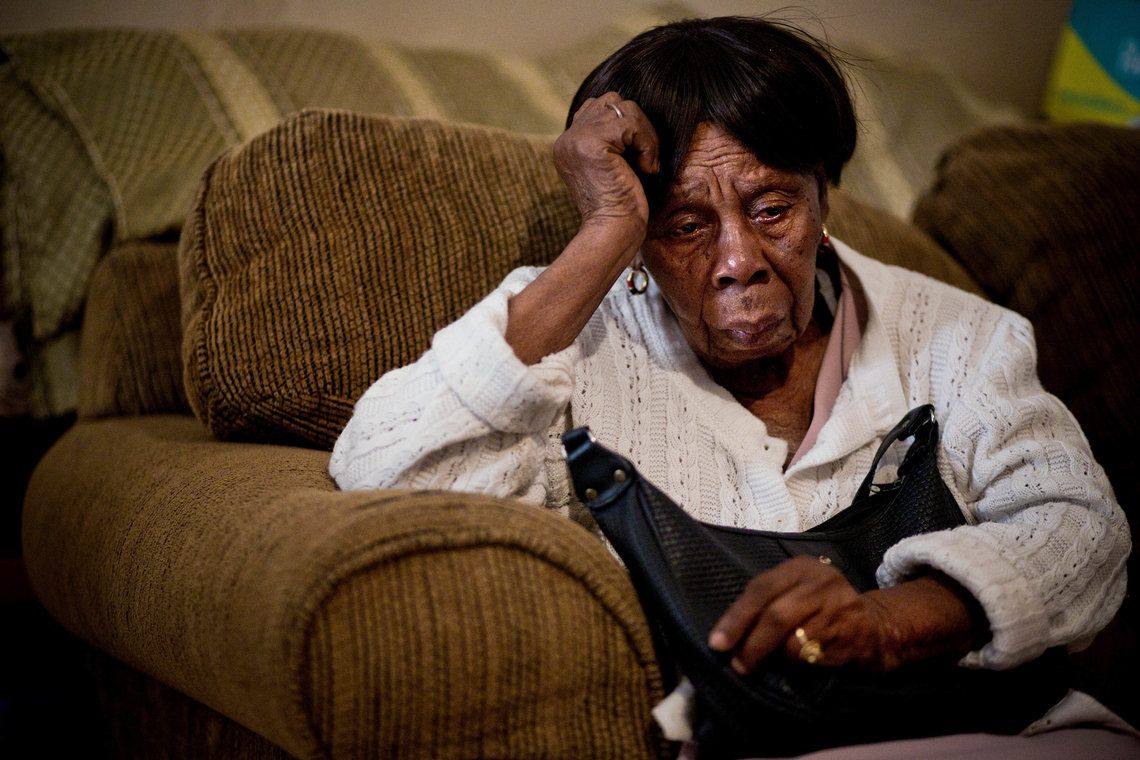
The Jules Letemps Case Published by Scott Mcintyre for The Marshall Project on February 6th:
Jules Letemps Exonerated:
On October 14, 2016 Jules Letemps was exonerated of the 1989 rape of a woman in Orlando, Florida, after serving 27 years in prison. Letemps, 53, can finally prove he was innocent, and excited to continue his life with his three children, his family and attending Baptist church with his mother.
Letemps is not a U.S. citizen so instead of being freed he was transferred to immigration detention because of a 30-year-old drug conviction. He now resides at the Glades County Detention Center, a rural Florida facility, facing deportation to Haiti, he left Haiti when he was 17 years old.
Mr. Letemps is now an ICE priority due to his conviction on a felony cocaine distribution charge. ICE makes decisions about who to detain and place in removal proceedings based on factors including “current immigration status, criminal history,… and other humanitarian or medical conditions.”
Jules Letemps Early Years:
Letemps came to Florida in 1981 on “humanitarian parole,” a temporary status granted to those fleeing their country for urgent humanitarian reasons. He had fled Haiti on a boat with his father and sister, among thousands of Haitians who emigrated due to political unrest and economic turmoil. Immigration officials revoked his parole after he was convicted of the rape, and planned to try and deport him after he served his sentence.

When he arrived in Florida, Letemps moved in with his mother in Miami’s Little Haiti neighborhood. He got jobs picking tomatoes and selling food at an airport kiosk. He soon left Miami to work at an orange grove near Orlando. There he started dating a woman and in 1986, she got pregnant. Letemps claims this was what led to his drug charge. “I couldn’t help her because I didn’t have a good job,” he said. “I bought 20 dollars worth of dope so I could sell it and make some money, but then the police arrested me.”
Letemps pled guilty to delivery of cocaine, and was sentenced to the five months he had already spent in jail. Immigration officials took no action against him. It was the later sexual assault conviction that brought him to ICE’s attention.
Letemps moved in with his girlfriend when he was released, and got a job washing cars at a dealership. The couple had a second daughter and a third on the way. On the morning of May 29, 1989, his girlfriend woke him at 6:30 to get ready for work. He washed up, brushed his teeth, and left at 7 am, leaving behind his two young daughters and pregnant partner. He never came back.
Letemps Rape Charge:
Letemps was stopped by a police officer and a crying woman while walking to the dealership. Unbeknownst to him, the woman had been raped nearby earlier that morning. She returned to the scene of the crime with her family, saw Letemps, and pointed him out as the man who had attacked her. He was arrested and charged with sexual battery and kidnapping.
The case moved quickly after that. Letemps was assigned a public defender, but was not given a Creole interpreter to help him testify. After a two-day trial, the jury found him guilty on four counts, based almost entirely on the victim’s identification. Letemps, who was 26 during his trial, was given four concurrent life sentences.
Letemps who has no formal education and cannot read or write in English or Creole — had to rely on other inmates to fight his conviction from prison. He paid 30 or 40 dollars from his commissary fund for each motion or filing that someone wrote for him. But those attempts were filled with errors. “He has a very thick court file, but it’s full of woefully insufficient, inaccurate and ridiculous petitions,” said Kate Germond, executive director of Centurion, a nonprofit legal service that fought for Letemps’ exoneration.
Centurion took on his case in 2010. Digging into his file, lawyers discovered a serological test of a semen stain on a robe the victim wore shortly after the attack. The results excluded Letemps as her rapist. The evidence had been available all along, but his public defender had misunderstood the results.
Immigration Law vs Legal Team:
According to the Marshall, there is no statute of limitations in immigration law. Immigrants can be deported for criminal convictions no matter how long ago they occurred or how meritorious a life they have led since. A Marshall Project analysis found that roughly 20 percent of those deported for non-immigration offenses had committed their crimes over a decade ago.
Letemps is being treated as an “arriving alien” in court proceedings, because he arrived on parole. That means that he is not entitled to a bond hearing in front of a judge to argue for his release from detention. Only the Department of Homeland Security can decide whether to let him go. The department denied that request in November, meaning Letemps will likely be detained until his case is resolved.
Letemps’ lawyer John Pratt argue that sending the man back to Haiti would be an act of cruelty amounting to torture. It is common practice in Haiti to detain criminal deportees upon their arrival in cramped, unsanitary jails. In 2011, a Haitian man died in one such cell from cholera-like symptoms, days after he was deported from Florida. These conditions could be especially threatening for Letemps as he has already had two heart surgeries and high blood pressure.
His other argument is that letting Letemps stay here would be a proper compensation for the 27 years he spent wrongfully imprisoned. He has almost no family left in Haiti, as most became naturalized American citizens while he was in prison.

In the interview Letemps mother Pierrecina Aurelus who is now a U.S citizen said “If Jules goes to Haiti, I’m going to lose him, what is he going to do? He’s going to die.”
He spent 27 years in jail for a crime he didn’t commit, and now they want to throw him out of the country,” said attorney Paul Casteleiro, legal director of Centurion. “I don’t know how much fight he has left in him.”





























